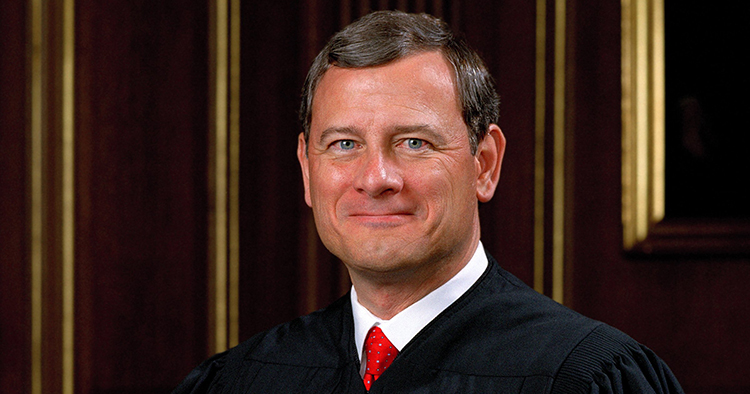Judiciary's handling of sexual harassment complaints will be evaluated, Chief Justice Roberts says

The judiciary will evaluate the way it handles complaints of sexual harassment and its own standards of conduct regarding inappropriate behavior, according to Chief Justice John G. Roberts Jr.
Roberts talked of his plans for an evaluation in his 2017 State of the Judiciary Report, report the Washington Post, the New York Times and Law.com. The report was issued on Sunday, less than two weeks after Judge Alex Kozinski announced his immediate retirement amid allegations of sexual misconduct.
Kozinski was accused of asking two former law clerks to look at pornography in his chambers, making sexual comments to law clerks, and inappropriate touching. The 9th Circuit’s chief judge initiated a misconduct complaint against Kozinski based on the allegations.
“Events in recent months have illuminated the depth of the problem of sexual harassment in the workplace, and events in the past few weeks have made clear that the judicial branch is not immune,” Roberts said in the report (PDF).
“The judiciary will begin 2018 by undertaking a careful evaluation of whether its standards of conduct and its procedures for investigating and correcting inappropriate behavior are adequate to ensure an exemplary workplace for every judge and every court employee.”
Roberts said he has great confidence in federal judges. “I am sure that the overwhelming number have no tolerance for harassment and share the view that victims must have clear and immediate recourse to effective remedies.”
Nearly 700 current and former law clerks had asked Roberts in a letter to address sexual harassment in his state of the judiciary report. Some clerks had said they feared confidentiality rules barred them from reporting sexual harassment by judges. Since then, an amendment to the federal law clerk handbook specifies that confidentiality rules don’t prevent sexual harassment complaints against judges.
Roberts said he expected a working group addressing the issue to “to consider whether changes are needed in our codes of conduct, our guidance to employees—including law clerks—on issues of confidentiality and reporting of instances of misconduct.” He also said he expected the working group to consider the judiciary’s educational programs, and its rules for investigating and processing misconduct complaints.
Kozinski said in his retirement announcement that he has “always had a broad sense of humor and a candid way of speaking to both male and female law clerks alike. In doing so, I may not have been mindful enough of the special challenges and pressures that women face in the workplace. It grieves me to learn that I caused any of my clerks to feel uncomfortable; this was never my intent. For this I sincerely apologize.”
According to the Times and Law.com, Roberts may have added the sexual harassment discussion late in the drafting process of his report, which dealt mostly with the court system’s efforts to prepare for natural disasters. Remote information technology resources help keep records available, while a Judicial Emergency Response Team helps courts resume operations after natural disasters, Roberts said.
In the future, essential equipment such as satellite telephones, batteries, generators and emergency supplies will be moved to areas susceptible to hurricanes and flooding, Roberts aid. The equipment is intended to address gaps in communications systems discovered after widespread power outages in Puerto Rico and the Virginia Islands.
“The hurricanes brought flooding, power outages, infrastructure damage and individual hardship to Texas and Florida,” Roberts wrote. “But the judicial districts of the Virgin Islands and Puerto Rico were especially hard hit. Judges and court employees responded in dedicated and even heroic fashion.”



